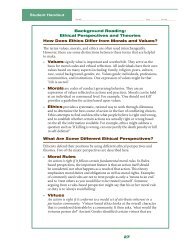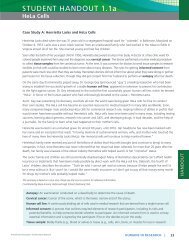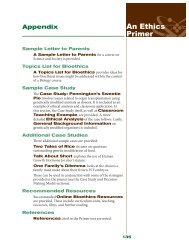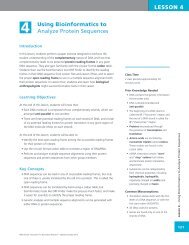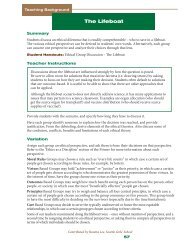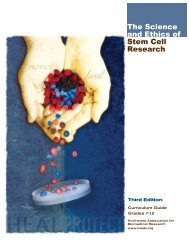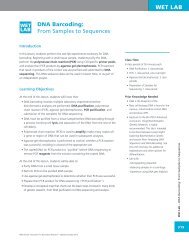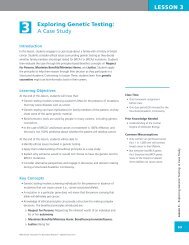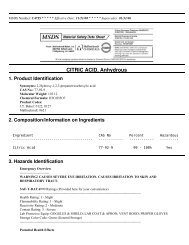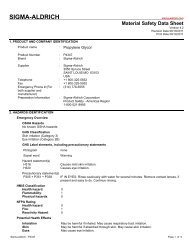Ethics: A Primer for Non-Ethicists (PDF) - ASPB News
Ethics: A Primer for Non-Ethicists (PDF) - ASPB News
Ethics: A Primer for Non-Ethicists (PDF) - ASPB News
Create successful ePaper yourself
Turn your PDF publications into a flip-book with our unique Google optimized e-Paper software.
consumer or provider), or among principles. Ethical questions include (or imply)<br />
the words "ought" or "should".<br />
Although we frequently hear the term “ethical dilemma”, many ethical problems<br />
are not dilemmas. They are even more complicated. A "dilemma", from the<br />
Greek di (two) and lemma (assumption), means a confrontation in which both<br />
alternatives have an equal likelihood of causing harm (or benefit). Many ethical<br />
problems in genetics present more than two alternatives and are there<strong>for</strong>e not<br />
dilemmas, but trilemmas or quadrilemmas.<br />
What Is an "Ethical" Response to an Ethical Question<br />
Many people use non–ethical reasoning to respond to ethical questions. <strong>Non</strong>–<br />
ethical reasons are not necessarily "unethical" or harmful; they simply avoid the<br />
difficulty of ethical thinking.<br />
Examples of <strong>Non</strong>–Ethical Statements<br />
Sometimes people use technical, scientific, legal, religious, or institutional policy<br />
statements to answer the question, "What should I do" These are not ethical<br />
statements because they do not include a rationale that transcends particular<br />
institutions. Here are some examples of non-ethical responses to ethical<br />
problems:<br />
(1) "Technology will eventually solve this problem."<br />
For example, suppose someone refuses to give blood <strong>for</strong> a DNA sample that<br />
could provide useful genetic in<strong>for</strong>mation to other members of the family. What<br />
should the genetics services provider do<br />
The answer that "In the future direct DNA testing on the family members will be<br />
possible so this situation will not occur" is not an ethics based response. Many<br />
geneticists prefer technological answers because they appear to be the simplest<br />
solutions. Technology, however, will not obviate all difficult decisions. Direct DNA<br />
testing may eliminate the problem of family cooperation <strong>for</strong> some genetic testing,<br />
but may pose new problems, <strong>for</strong> example, increased requests <strong>for</strong> testing by<br />
employers or insurers. One should not look to scientific discoveries to remove or<br />
solve ethical problems.<br />
(2) "The law requires or prohibits this."<br />
Fear of lawsuits plays a role in many medical decisions. For example, in<br />
response to the question of whether to disclose fetal sex to a couple who may<br />
terminate a pregnancy solely on the basis of sex, some providers say disclosure<br />
is a legal requirement and proceed no further in their reasoning. If a pregnant<br />
woman's separated husband asks <strong>for</strong> the results of her prenatal diagnostic tests,



